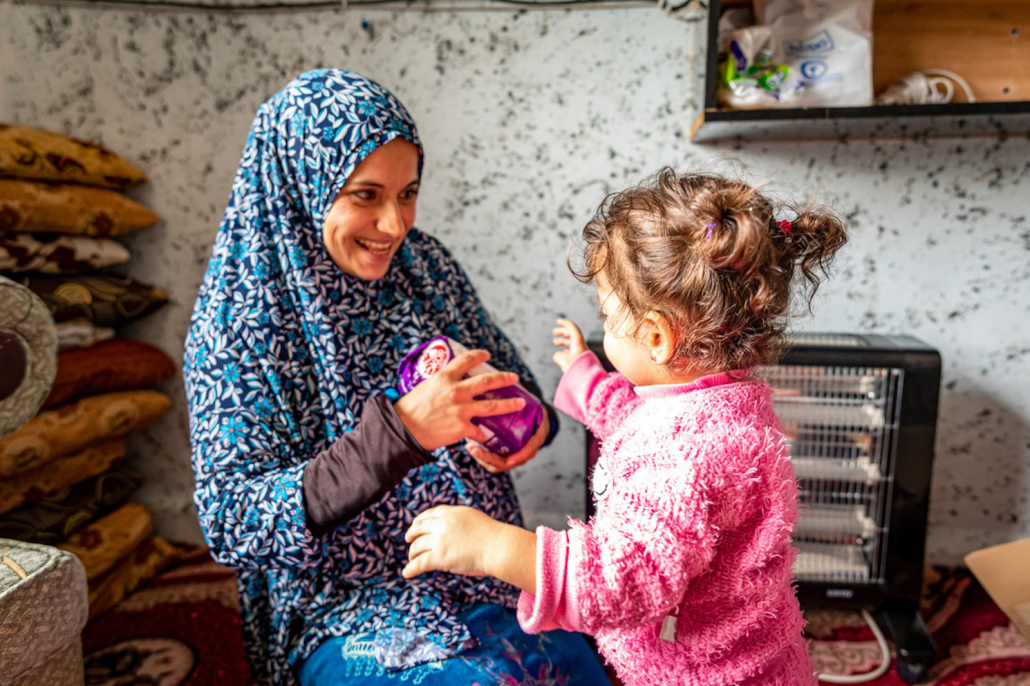Most refugees, like Heba, simply want to return home (Act for Peace, 2021).
‘A low place’
Andy Corkill
Advent 4, Year C
Micah 5:2-5a; Luke 1:39-55
I’ve lived and worked with people who you might call down on their luck, temporarily homeless, mired in debt or unable to access medical treatment …
Or perhaps you’ve been there yourself.
And at times like this, I am sure you can understand that people yearn for the basics – food, peace and security.
Micah the prophet admonishes his own people for their wickedness.
He points to the leaders, the judges, priests, and prophets, who put their confidence in power and profit and cause the people to suffer because of it.
The powerful people worked schemes to take advantage of the powerless, oppressing them by taking their houses and fields.
These powerful people tell Micah to keep his mouth shut, but he speaks truth to power and he knows that if he keeps silent the sinful ways will continue. Someone must stand up for those who do what is right.
He declared the high place Jerusalem and the Temple a site for corrupted worship.
He directs the people to Bethlehem, a low place, the birthplace of David, as the location from which, God says, the nation will be restored. Christians naturally see this text as a reference to Jesus.
Yet we can also appreciate that Micah is praising Bethlehem as a way of rebuking Jerusalem.
In Micah’s prophecy, the rulers in Jerusalem tear the skin and flesh off God’s people and “chop them up like meat in a kettle”. It’s a graphic image …
But we don’t need to look far today to see people who are trampled by powerful agendas.
To see people who are abused by the misuse of power.
And I want to share with you the story of one refugee family who are suffering because of powerful forces.
Heba is a refugee living outside her homeland.
Her family is one of the thousands forced to flee the Syrian civil war which started over a decade ago, and she is now living in neighbouring Jordan.
And Heba is currently expecting her fifth child, and she is frightened for the future.
Her husband lost his job in the coronavirus lockdown, and the family depend on food rations to survive.
Heba can’t afford medicine for her children when they get sick, or to visit the doctor regularly about her pregnancy.
It’s a far cry from the family’s happy, comfortable life on a farm in the Syrian countryside.
That was all lost when war broke out.
Heba said: “At the beginning of living here, everything was hard to access, and we faced many challenges, which make us afraid.”
And for refugees, around the world the risks are numerous and complex:
- Work rights;
- Access to legal documents;
- Access to health care / physiological support;
- Education / vocational and livelihoods.
Most refugees, like Heba, simply want to return home.
The aspiration of a safe, sheltered home is universal.
And in our gospel reading we hear of a universal hope. From another young woman – we hear her singing.
Mary’s song proclaims a God who scatters the proud, brings down the powerful and sends the rich away empty. The lowly are lifted up, and the hungry are fed.
It’s a powerful, profound image …
Friends, I have seen lives transformed through the work of the Christmas Bowl.
It started when the Rev. Frank Byatt put an empty bowl on his Christmas table, as a humble response to the suffering he saw after WW2. He asked his family and friends to give what they felt the value of their Christmas meal had been.
“The evangel is complete only when the action of the gospel matches the message of the gospel” (Rev. Frank Byatt, 1954).
That was over 70 years ago – and we are still doing that.
So, three things:
Pray – people we serve, partners, staff in dangerous places, volunteers …
Social – like, comment and share …
Give – envelopes, online, or even in your will.
May we continue Mary’s chorus, and sing and respond to a God who scatters the proud, lifts up the lowly, and feeds the hungry. Amen.




